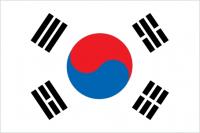2030 Water Security Strategy
The Coca-Cola Company
(
Private sector
)
#SDGAction51783
Description
The Coca-Cola Company’s holistic 2030 Water Security Strategy is focused on accelerating the actions needed to increase water security where we operate, source ingredients and touch people’s lives. The three goals accelerating our actions on water are as follows: • Achieve 100% circular water use – or regenerative water use – across 175 facilities identified as “leadership locations” by 2030. • Work with partners to help improve the health of 60 watersheds identified as most critical for the company's operations and agricultural supply chains by 2030. • Aim to return a cumulative total of 2 trillion liters of water to nature and communities globally, between 2021-2030.
Our three goals are:
- Achieve 100% circular water use – or regenerative water use – across 175 facilities identified as “leadership locations” by 2030.
- Work with partners to help improve the health of 60 watersheds identified as most critical for the company's operations and agricultural supply chains by 2030.
- Aim to return a cumulative total of 2 trillion liters of water to nature and communities globally, between 2021-2030.
Below are some key actions the company is taking to achieve these goals:
- Working to achieve regenerative water use – reducing, reusing, recycling and replenishing the water used to produce its beverages.
- Improving community access to drinking water, sanitation and hygiene while supporting people – especially women and girls – to prepare and rapidly recover from water-related crises.
- In priority watersheds, establishing and implementing watershed stewardship plans to improve shared challenges (quantity, quality, ecosystems, infrastructure, governance).
- Sourcing “water-sustainable” ingredients and supporting nature-based solutions.
- Working with suppliers so they use less water to grow ingredients.
- Partnering with governments, NGOs, communities and other companies to share resources and take collective action that creates scale and advances innovation and science.
- Advocating for good water governance and smart water policies while engaging all stakeholders on responsible water use – including customers and consumers.
- The company will continue to work with partners including the World Bank’s Water Resources Group, CEO Water Mandate, Global Water Challenge, The Nature Conservancy, World Wildlife Fund, and many others in pursuit of these goals.
We are focused on good water stewardship, starting within our own four walls, and extending outside. This includes investing in initiatives to reduce the amount of water used in making beverages, and to treat and reuse water where possible. It also means working to preserve nature, biodiversity and promote advanced water management practices.
CEO Water Mandate, a partnership between the UN Global Compact and the Pacific Institute WWF The Nature Conservancy Global Water Challenge World Bank’s Water Resources Group WaterAid Water & Sanitation for Urban Poor World Resources Institute Ceres Among hundreds of other partners globally
SDGS & Targets
Goal 6
Ensure availability and sustainable management of water and sanitation for all
6.1
By 2030, achieve universal and equitable access to safe and affordable drinking water for all
6.1.1
Proportion of population using safely managed drinking water services
6.2
By 2030, achieve access to adequate and equitable sanitation and hygiene for all and end open defecation, paying special attention to the needs of women and girls and those in vulnerable situations
6.2.1
Proportion of population using (a) safely managed sanitation services and (b) a hand-washing facility with soap and water
6.3
By 2030, improve water quality by reducing pollution, eliminating dumping and minimizing release of hazardous chemicals and materials, halving the proportion of untreated wastewater and substantially increasing recycling and safe reuse globally
6.3.1
Proportion of domestic and industrial wastewater flows safely treated
6.3.2
Proportion of bodies of water with good ambient water quality
6.4
6.4.1
Change in water-use efficiency over time
6.4.2
Level of water stress: freshwater withdrawal as a proportion of available freshwater resources
6.5
By 2030, implement integrated water resources management at all levels, including through transboundary cooperation as appropriate
6.5.1
Degree of integrated water resources management
6.5.2
Proportion of transboundary basin area with an operational arrangement for water cooperation
6.6
6.6.1
Change in the extent of water-related ecosystems over time
6.a
6.a.1
Amount of water- and sanitation-related official development assistance that is part of a government-coordinated spending plan
6.b
Support and strengthen the participation of local communities in improving water and sanitation management
6.b.1
Proportion of local administrative units with established and operational policies and procedures for participation of local communities in water and sanitation management
SDG 14 targets covered
| Name | Description |
|---|
Deliverables & Timeline
Achieve 100% circular water use – or regenerative water use – across 175 facilities identified as “leadership locations” by 2030
Work with partners to help improve the health of 60 watersheds identified as most critical for the company's operations and agricultural supply chains by 2030.
Aim to return a cumulative total of 2 trillion liters of water to nature and communities globally, between 2021-2030.
Resources mobilized
Partnership Progress
Feedback
Action Network

Timeline
Entity
SDGs
Region
- Africa
- Europe
- Asia and Pacific
- North America
- Latin America and the Caribbean
- West Asia
Other beneficiaries
Beneficiaries of community WASH access projects; watersheds where action is undertaken; communities located around company facilities; and suppliers, partners and, collective action platforms.
Website/More information
Countries











































Contact Information
Madhu, Senior Director

